DJI has launched two new gimbals to revolutionize the way you shoot video
DJI announce new RS 3 and RS 3 Pro gimbals to revolutionize the way you shoot video
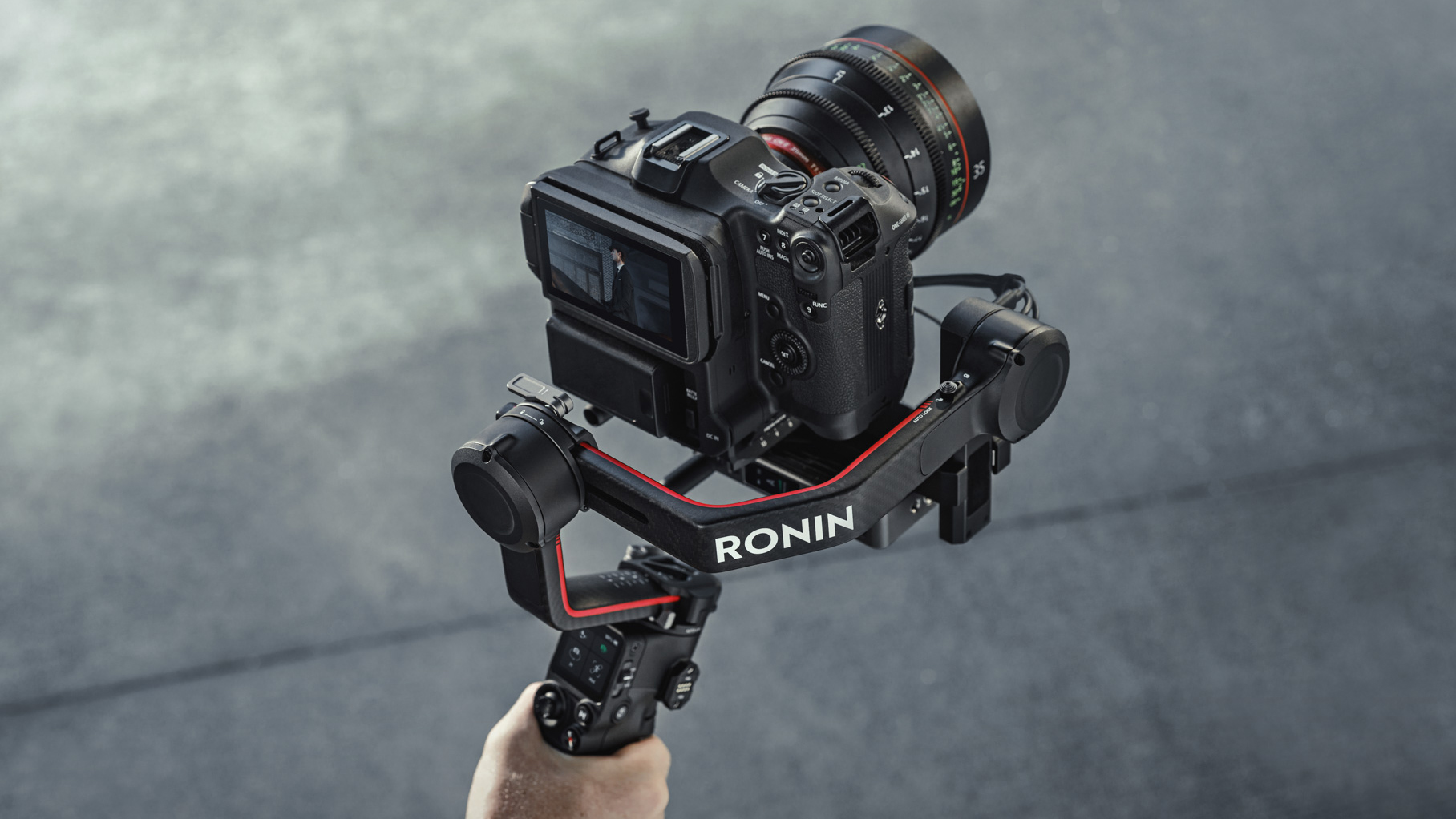
DJI, a tech giant in the drones and creative camera technology market, has unveiled three new tools – two gimbals and a wireless video solution – that will enable filmmakers and the content creation community to easily, seamlessly, and intuitively bring their visions to life.
The DJI RS 3 and DJI RS 3 Pro stabilizers bring landmark improvements to the classic and reliable Ronin series, while DJI Transmission – DJI’s first independent wireless video solution – combines reception, monitoring, control, and recording in one.
This new generation of the Ronin ecosystem allows creators to focus on what’s in front of their camera by simplifying everything connected to it, making sure you get the shots you want, while the equipment does the hard work for you.
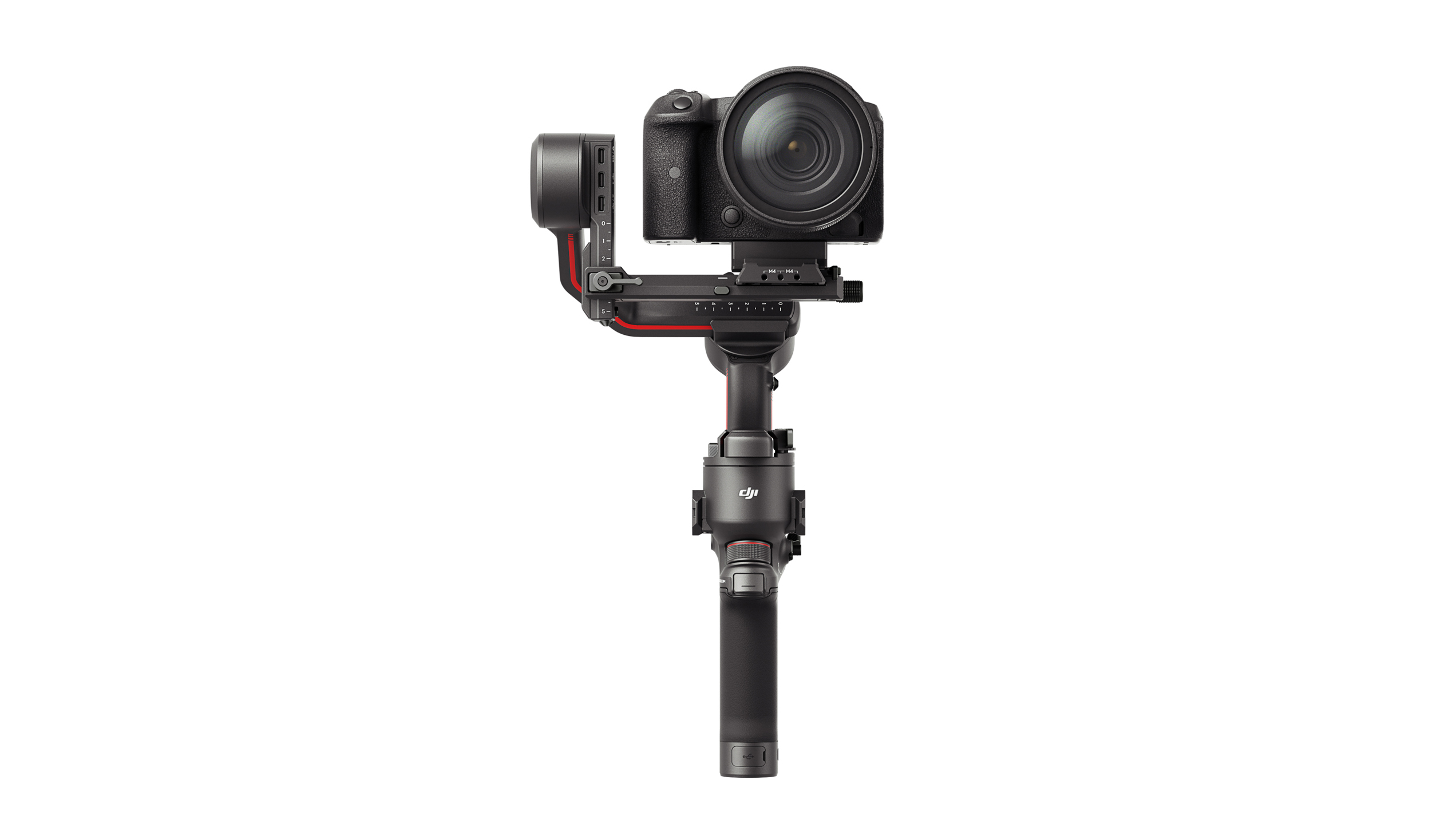
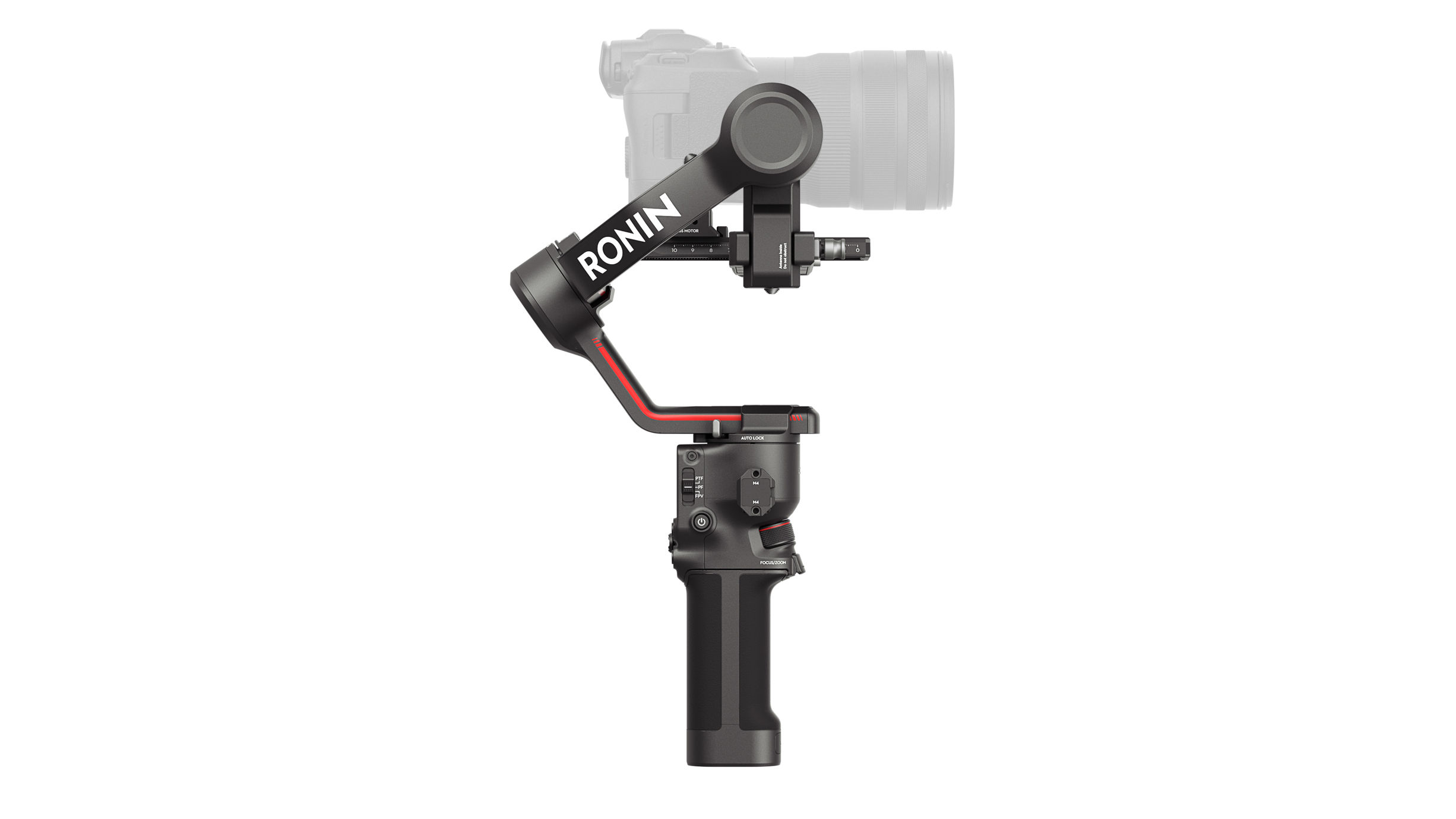
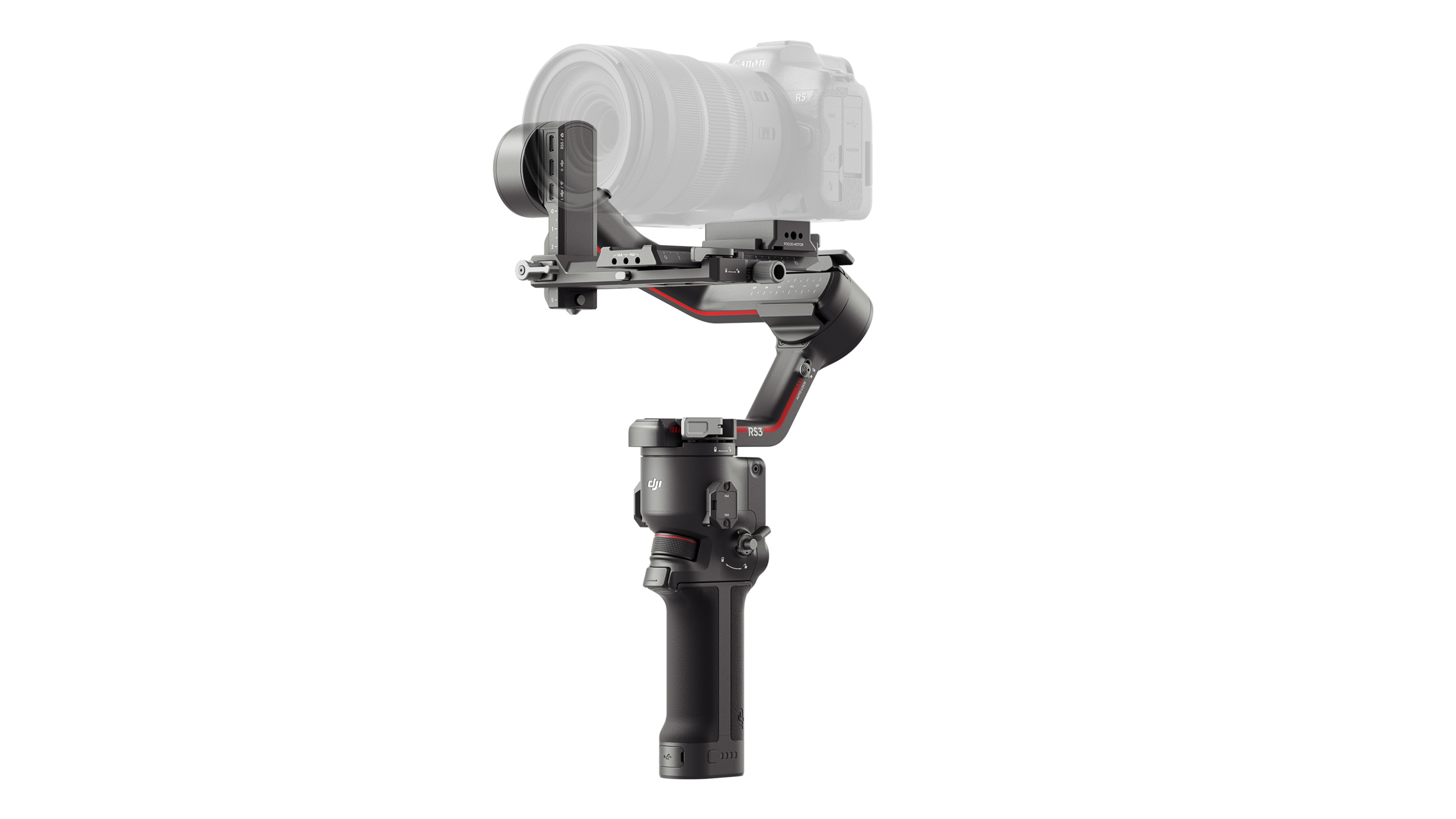
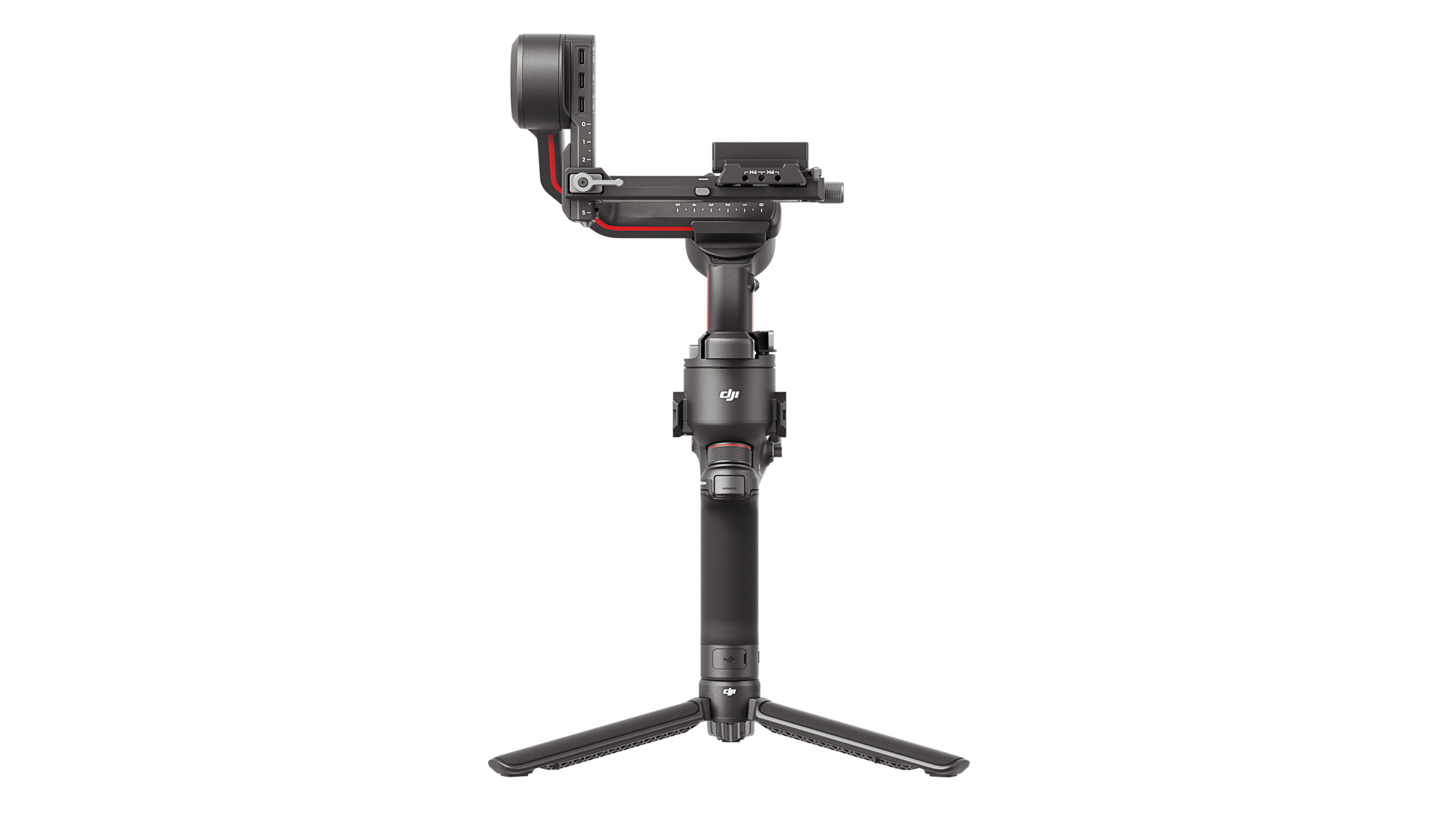
Given that are so many brilliant gimbals on the market now, DJI will have to do a lot to make in our list of the best gimbals.
Obviously the Ronin product line is a key part of DJI, supporting content creators from keen hobbyists to professionals around the globe. Last October’s launch of the Ronin 4D cemented DJI’s presence in the professional filmmaking world, giving cinematographers an entirely new way to create.
Whether it’s the new automated axis lock system, 3rd-Gen RS stabilization algorithm improving performance by 20%, or the one-tap calibration, the DJI RS 3 and RS 3 Pro have been optimized for user efficiency and reliability.
Paul Pan, Senior Product Line Manager at DJI has this to say about the new products: “Ever since the introduction of the first Ronin back in 2014, we’ve continually gained feedback from industry professionals on how we can enhance our products to cater to their evolving needs. Implementing this feedback, we’ve optimized the design, stabilization, and gimbal control to create next-generation, highly effective, and reliable stabilizers designed for unparalleled efficiency. Furthermore, we don’t just stop at stabilization."
Get the Digital Camera World Newsletter
The best camera deals, reviews, product advice, and unmissable photography news, direct to your inbox!
He also went on to say that DJI understands the importance of video transmission and the various pain points faced in large, complex venues. "Whether it’s dealing with range, lagging images, or lost signals, the new DJI Transmission addresses these issues and offers an incredible 20,000-foot on-ground transmission distance.”
DJI RS 3
There are plenty of new features in the DJI RS 3 to get filmmakers up and running as quickly as possible. With a redesigned axes-locking system the process is now automated. By simply turning on the gimbal, the automated axis locks release and unfold the gimbal, allowing the operator to get started in seconds.
Tapping the power button once will send the device into sleep mode, which makes powering on the device, stowing it away, and relocating much faster. There’s also no need for repetitive balancing, with position memory via quick-release plates, enabling fast mounting with the perfect balance of the payload. Furthermore, the addition of a Bluetooth Shutter Button supports automatic connection without the need to connect a camera control cable.
In addition to the improved stability, RS 3 is also easier to configure, thank to DJI implementing a brand-new 1.8-inch OLED full-color touchscreen, with an increase of 80% surface area when compared to the previous RSC 2.
Most gimbal setups can be done directly without connecting to the mobile app, while the UI and interface logic have been redesigned to put all controls rights at your fingertips. This includes a physical gimbal mode switch that operators can slide to alternate between pan follow, pan and tilt follow, and FPV modes instantly, allowing cinematographers to get the desired results by a click of a button.
Furthermore, the RS 3 can easily be held in one hand, while it's just under 3kg / 6.6lbs tested payload capacity is more than enough to support the majority of mainstream devices used today. Pretty sweet, DJI!
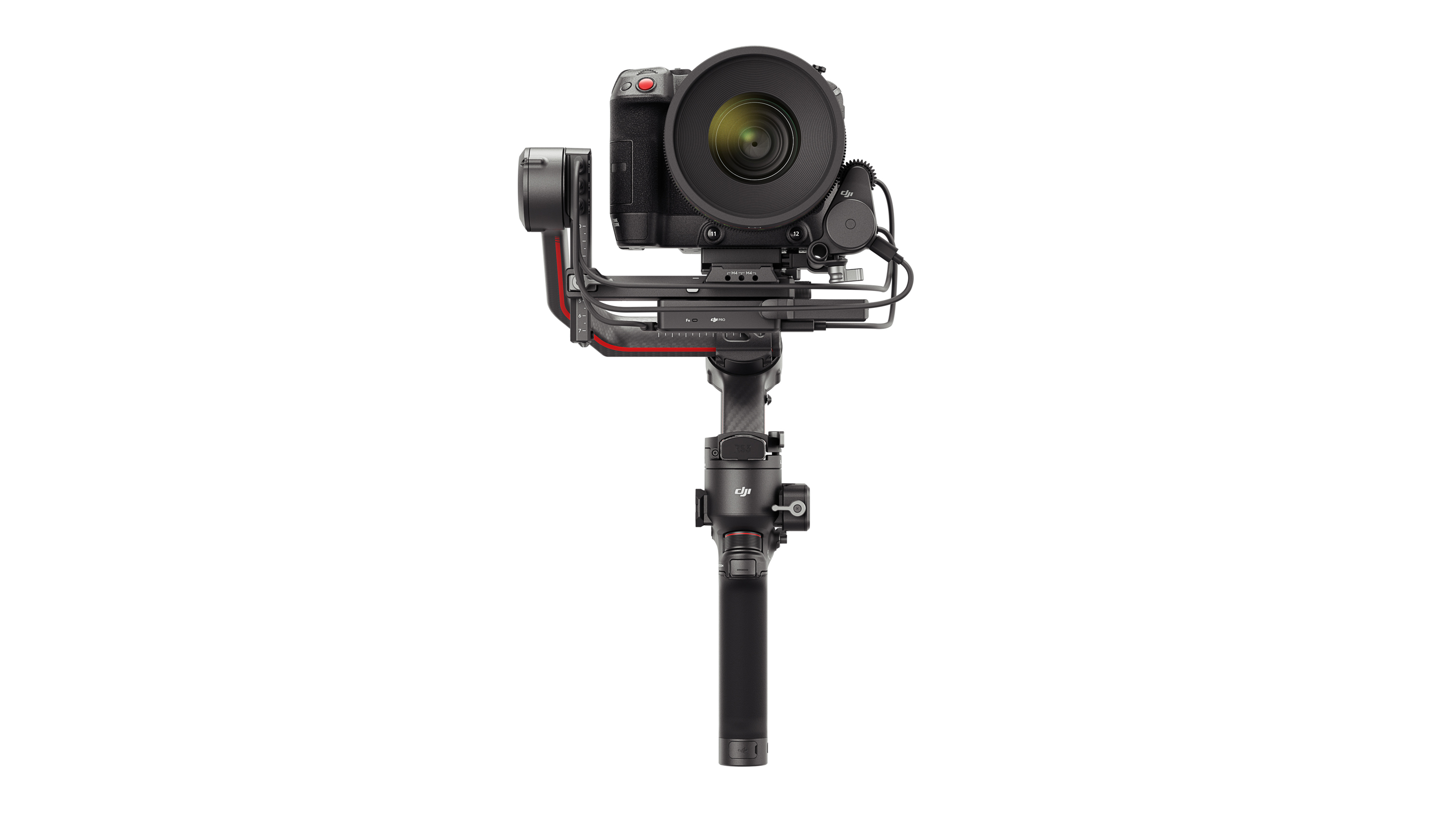
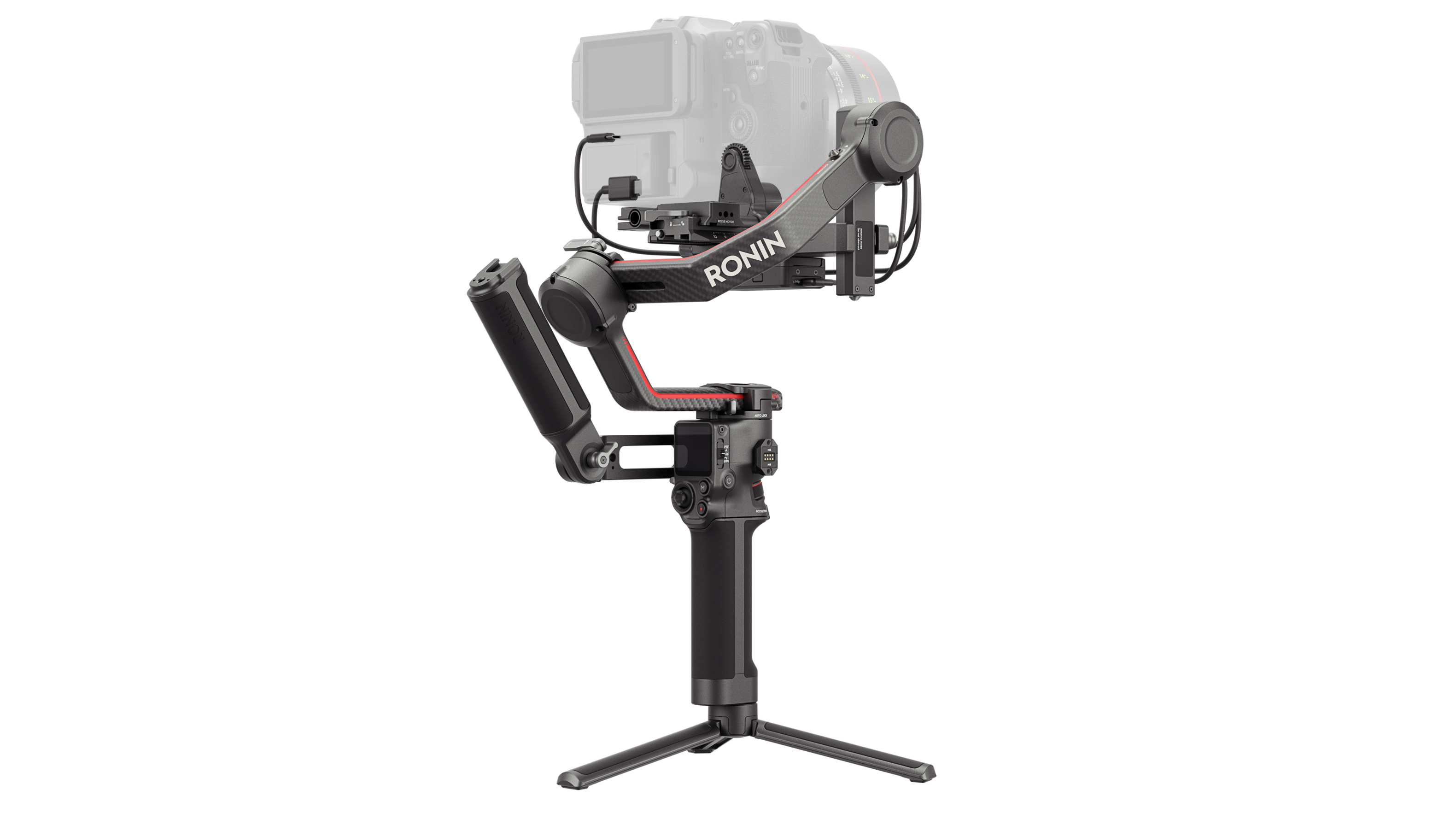
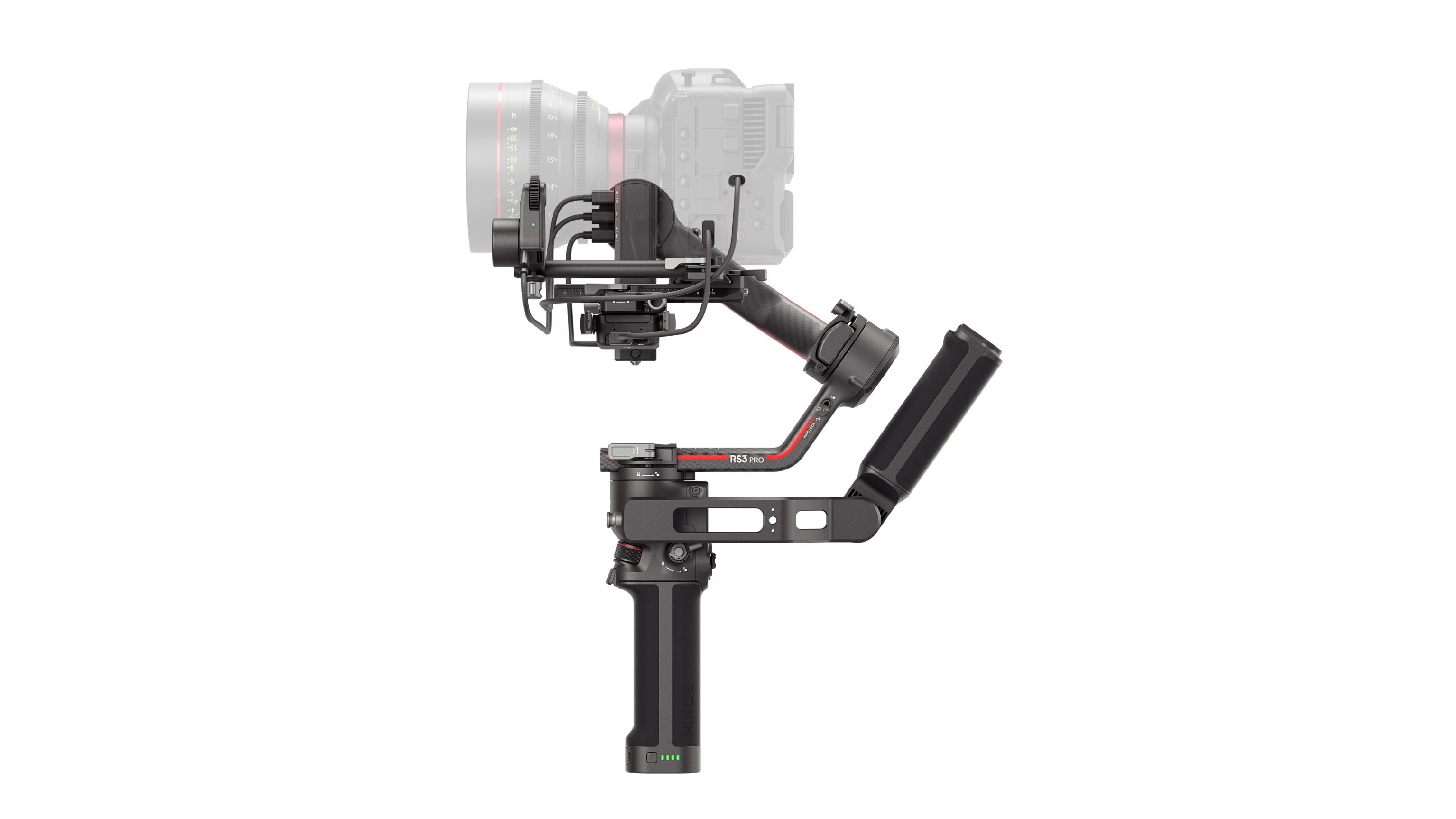
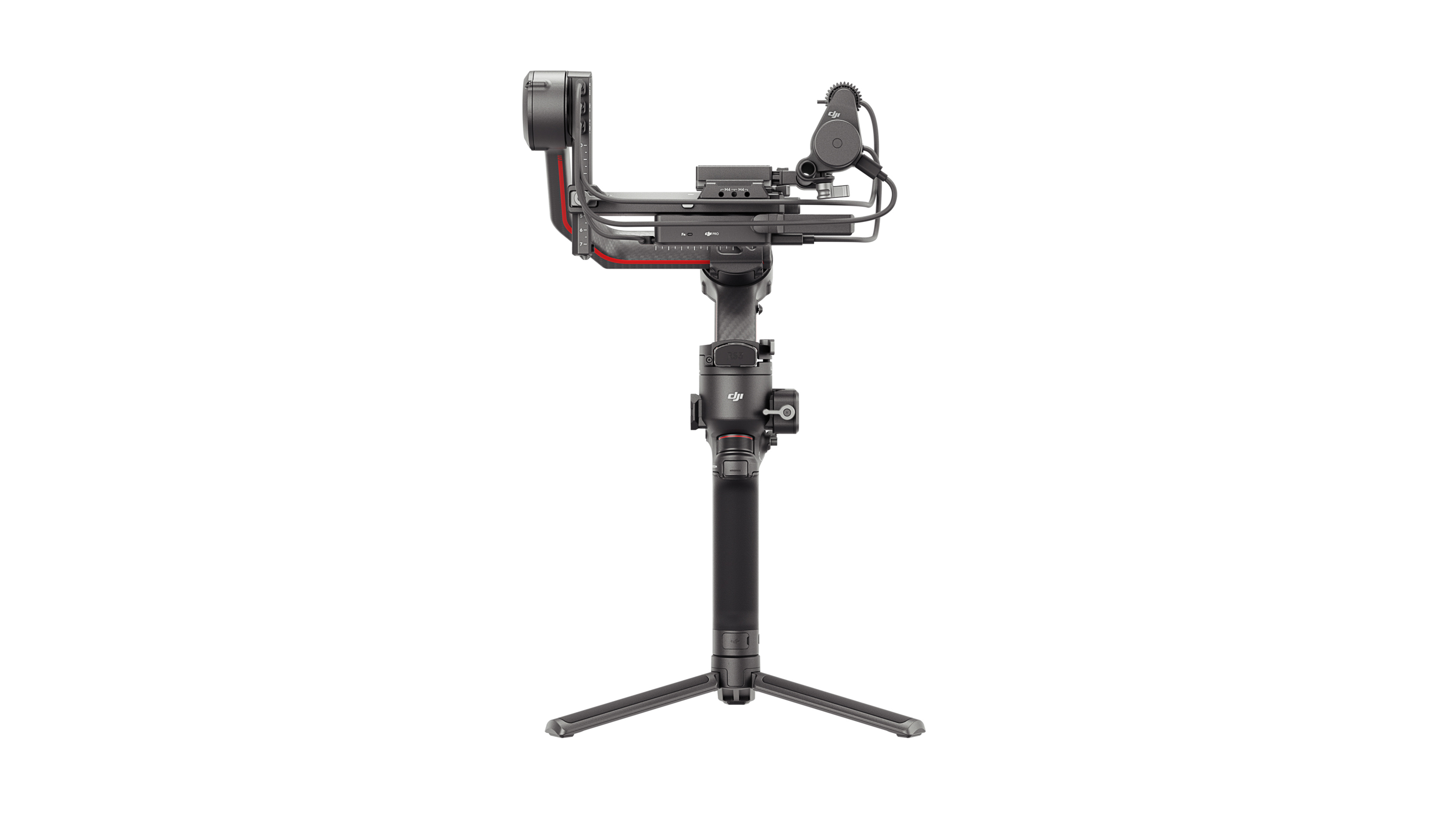
DJI RS 3 Pro
For those demanding even more DJI has also announced the DJI RS 3 Pro, which is an even more professional version of the new RS 3, offering a full suite of features as a versatile camera platform.
Its arms are constructed from one uncut piece of carbon fiber – just like the Ronin 2 – making the RS 3 Pro lighter and stronger than the jointed carbon fiber material used on previous DJI stabilizers. They have also been extended to allow for more balancing space for commonly used professional cameras like the Sony FX6, Canon C70, and the RED Komodo. While the structure has been optimized to keep its weight at 1.5 kg / 3.3 lbs with an impressive 4.5kg / 10lbs / tested payload capability. Naturally, the stabilizer also shares the automated axis locks, Bluetooth Shutter Button, 1.8-inch OLED touchscreen, and gimbal mode switch of RS 3 - for a professional looking to get their stabilizer game upgraded this looks to be a fantastic solution for professional cinema rigs.
Interestingly, those using manual lenses used to bring focusing challenges for solo shooters involved in professional projects. however, the RS 3 Pro carries Ronin 4D’s advanced LiDAR focusing technology to create the new DJI LiDAR Range Finder (RS), capable of projecting 43,200 ranging points within a 14-meter indoor area.
A next-generation focus motor provides torque three times stronger with one-step mounting, enabling autofocus on manual lenses with no need for repetitive calibration. Furthermore, the LiDAR Range Finder carries a DJI-developed chip identical to the one used in Ronin 4D and a built-in 30mm camera, boosting the computing power of ActiveTrack by more than 60 times, creating ActiveTrack Pro. This is a serious upgrade to any stabilizer on the market within this price pint and goes to show why DJI are at the top of the market, thanks to products like this.
Pricing and availability
The DJI RS 3 is available for purchase from authorized retailers and at www.store.dji.com with two purchase options:
The standalone DJI RS 3 retails from $549 / £469 / AU $799 - The DJI RS 3 Combo retails from $719 / £619 / AU $999
DJI RS 3 Pro is available to purchase from authorized retailers and www.store.dji.com with two purchase options:
The standalone DJI RS 3 Pro retails from $869 / £749 / AU $1,299 while the RS 3 Pro combo will retail for $1,099 / £949 / AU $1,599
Read more:
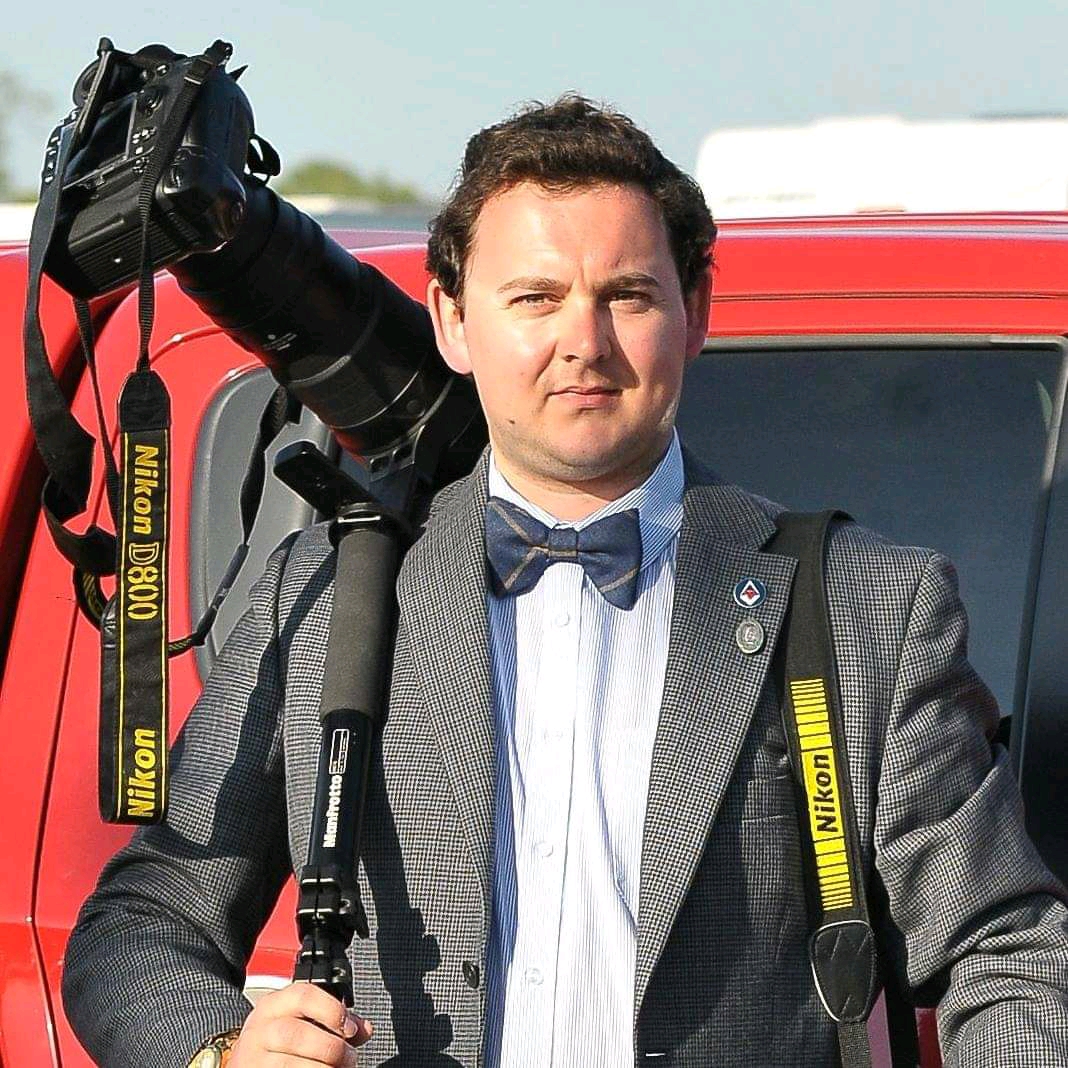
For nearly two decades Sebastian's work has been published internationally. Originally specializing in Equestrianism, his visuals have been used by the leading names in the equestrian industry such as The Fédération Equestre Internationale (FEI), The Jockey Club, Horse & Hound, and many more for various advertising campaigns, books, and pre/post-event highlights.
He is a Fellow of the Royal Society of Arts, holds a Foundation Degree in Equitation Science, and holds a Master of Arts in Publishing. He is a member of Nikon NPS and has been a Nikon user since his film days using a Nikon F5. He saw the digital transition with Nikon's D series cameras and is still, to this day, the youngest member to be elected into BEWA, the British Equestrian Writers' Association.
He is familiar with and shows great interest in 35mm, medium, and large-format photography, using products by Leica, Phase One, Hasselblad, Alpa, and Sinar. Sebastian has also used many cinema cameras from Sony, RED, ARRI, and everything in between. He now spends his spare time using his trusted Leica M-E or Leica M2, shooting Street/Documentary photography as he sees it, usually in Black and White.
